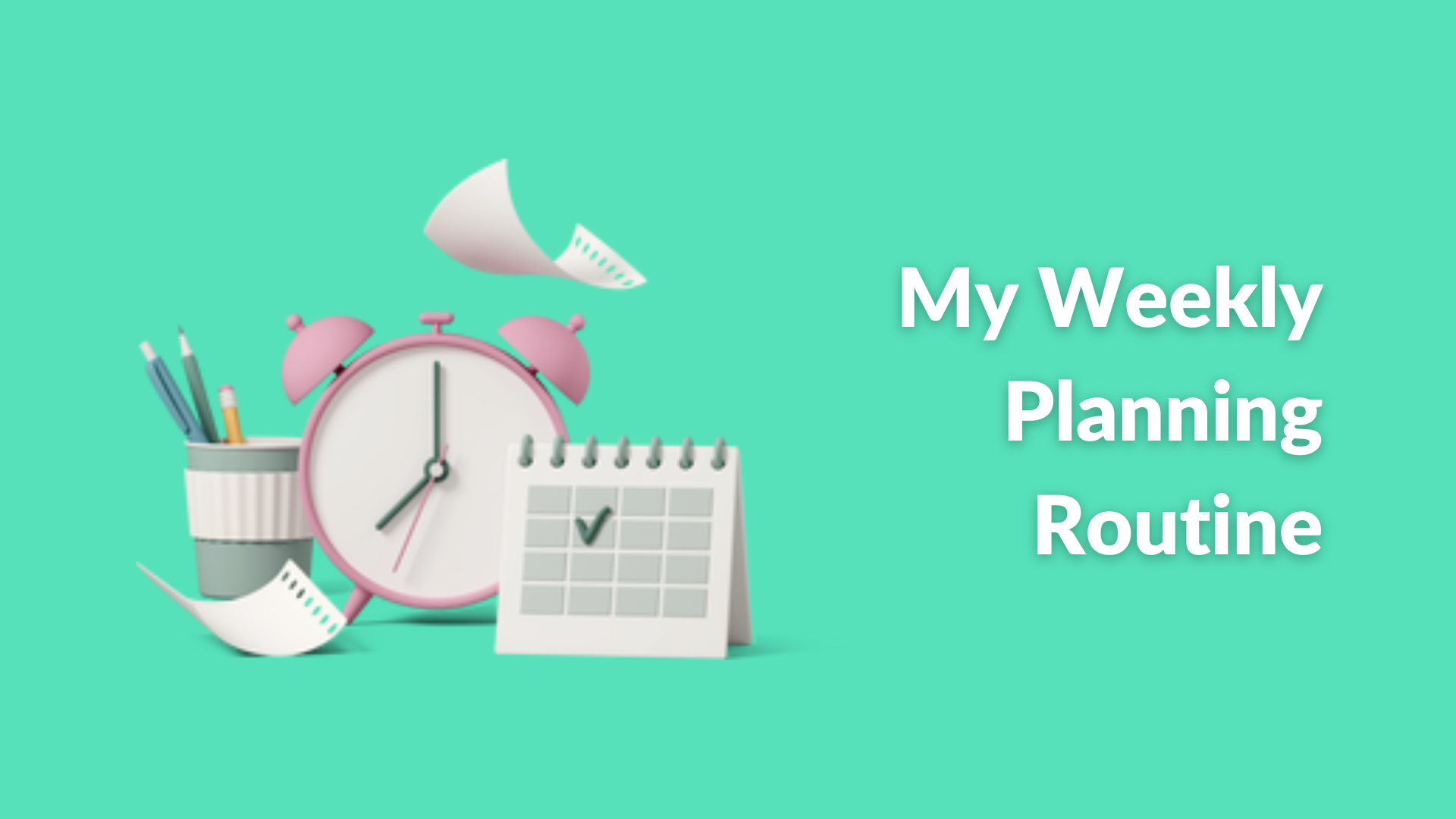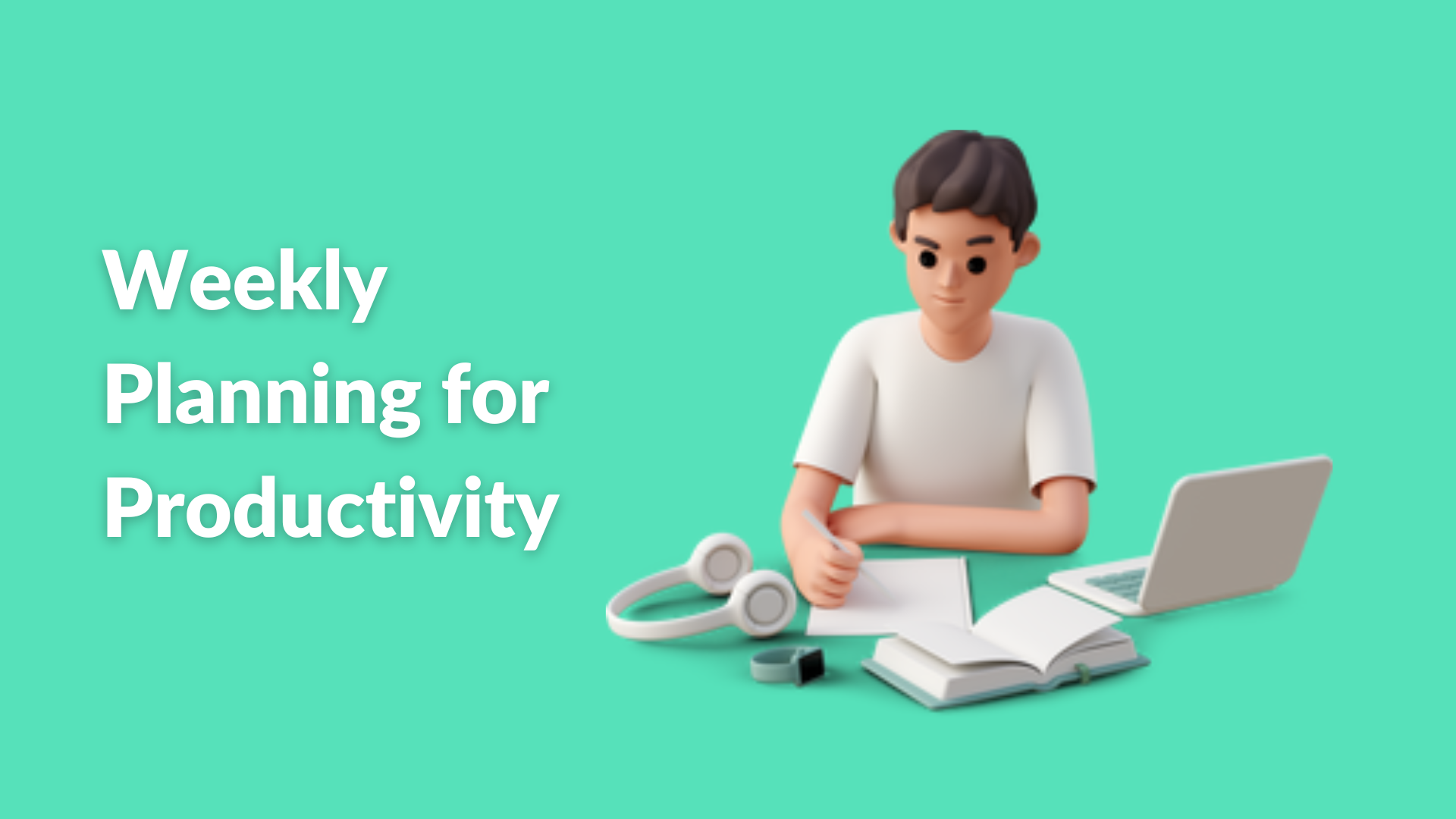How I Plan My Week

Weekly planning is an important aspect of my life and a great accelerator of my productivity. I have previously written about weekly planning for productivity and shared some tools and techniques. In this article, I would like to share my weekly planning routine and the tools and techniques I use.

I use Notion as my all-in-one platform to organize and track different aspects of my life and work. I have built a digital system that allows me to link the different components of my life and work, forming a functional structure. This works as my Second Brain, or what is sometimes referred to as a Life or Personal Operating System. I will share more about my Second Brain in future.
One of the components or sections of my Personal Operating System is a planning & review pipeline. The pipeline comprises daily, weekly, monthly, quarterly and annual planners. These enable me to plan and keep track of all my work and personal engagements on a periodic basis. In this article, I focus on the weekly planner.
Weekly Planning Components
There are specific components or areas that I take into account as I plan my week. These include; projects & tasks, financials, events & meetings, habits & routines and learning & development.
Projects & Tasks — I categorize my work into projects and tasks. Projects are major deliverables that comprise many interlinked moving parts while tasks are one-off or recurring deliverables. Some one-off tasks are linked to projects. I attach every project within my Second Brain to the respective week based on its timelines. This allows me to focus on specific projects within a specific week. As I review and plan, I am able to know what the next actions (tasks) are in relation to a particular project. Weekly project reviews also enable me to know and make adjustments to aspects like timelines and resources. Based on the one-off actions I need to take whether related to projects or not, I set specific tasks for specific days which allows me to know how much work I got lined up for the week.
Financials — Financial stewardship is a key principle for me. As such, I built a Personal Finance Tracker that is linked to the review pipeline. I, therefore, keep track of my weekly transactions. These are primarily income and expenses. This feeds into the general monthly budget that is also built within the Personal Finance tracker. It helps me manage my finances even better since I have a weekly overview of the transactions visa-vis the budget.
Events & Meetings — The Second Brain has an in-built calendar that I use to schedule meetings and other engagements. This is also linked to the weekly planner, and it allows me to know what engagements I have scheduled for the week. The beauty of having the calendar within my Second Brain is the ability to link any meetings or engagements to the relevant projects, tasks, and notes. I also use Google Calendar alongside the Notion calendar and scheduling system. Google Calendar is more widely used and is better for collaboration.
Habits & Routines — Consistently building healthy habits and routines isn’t easy. Creating a system that prompts action, and tracks and visualizes progress has helped me build consistency with my habits & routines. Some of the habits and routines I track on a weekly basis include; sleeping routines (sleep time), reading, journaling, workouts, and drinking water. These are mostly aligned with my health & wellness, and learning & development goals. Tracking these habits & routines gives insight that helps me make decisions on personal improvement in key areas of my life. I recently noticed that I was more invested in reading, and journaling and my sleep and water intake were struggling. As a result, I am taking even more intentional steps to get more sleep time and take enough water. I also use third-party apps like Google Fit to track some of my habits. It’s this data that is aggregated into my Second Brain to get comprehensive insights.
Learning & Development — This component largely looks at my cognition. I regularly set learning and development goals. This can be related to reading, listening to podcasts or doing a short online course on a subject of interest. As part of my weekly planning and review, I track what content I interact with or consume, but also assess my learning about any particular skills I am actively developing.
Weekly Planning Routine.
I take 30 mins to an hour at the start of each week to sit and review the previous week and then plan for the following. I do this on Sunday evenings or early Monday mornings. I follow a specific planning and review routine every week.
In terms of reviewing the previous week, I usually follow these steps;
- Evaluate my commitment to the projects & tasks
- Reconcile my financials
- Assess my habits & routines, and learning & development.
- I also use these 4 questions to help me to do some general reflection;
- Describe this week in 3 words
- What did I learn this week?
- Who or what am I grateful for?
- What would I like to improve?
The review of the previous week directly influences the planning for the current week.
When planning for the current week, I mostly leverage the Prioritization Matrix. And some of the steps I take include
- Making the necessary adjustment to project timelines and other resources based on my priority for the week.
- Locking-in dates and times for the different meetings and engagements.
- Making the necessary adjustment to habits & routines based on insights from the previous week and the setting the thresholds or targets for the week’s habits & routines based on the schedule.
- Setting learning intentions for any learning that needs to happen that week.
Over the years, my weekly planning and review routine has greatly improved, and it has helped me remain effective and efficient in my work and personal life. There is definitely still room for improvement especially as I get involved in more and more stuff.
Productivity is ultimately achieved through focused prioritization and intentional action. Having a solid routine that doesn’t foster implementation is useless. I therefore often evaluate the effectiveness of my routine and systems to make adjustments where necessary.
If you find this helpful, feel free to apply the principles, tools, and techniques in your context. I am also going to share the details of my Notion Weekly Planner, a template to use and a step-by-step guide on how to use it. You can subscribe to receive it directly in your inbox when it's published.

